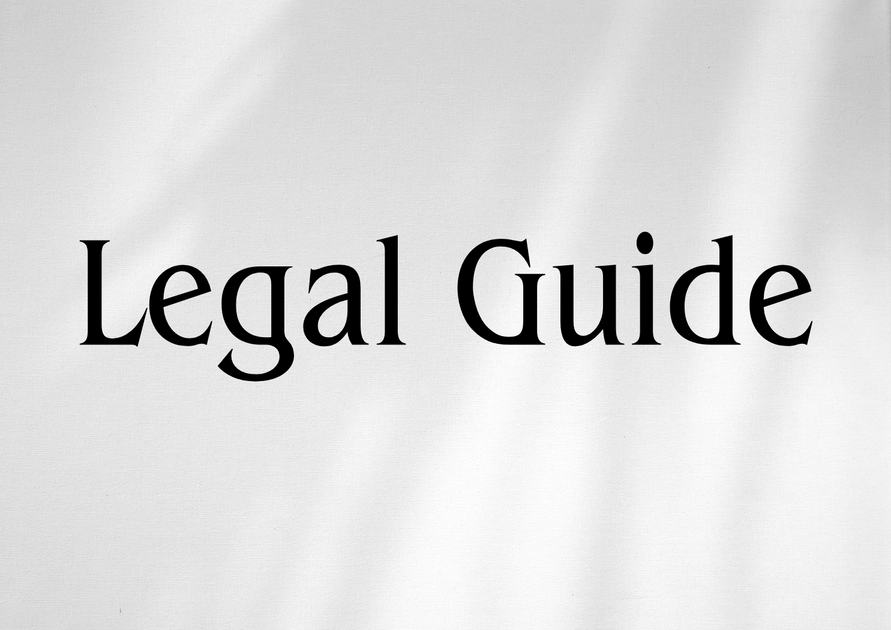Introduction: Navigating Force Majeure in Saudi Business Contracts
As business relationships deepen across the GCC, understanding contractual risk management is crucial for UAE companies operating in or with Saudi Arabia. One of the most pivotal—and at times, misunderstood—elements in commercial agreements is the force majeure clause. With recent regional and global disruptions, including supply chain interruptions, pandemics, and shifting regulatory frameworks, these provisions have gained renewed importance. UAE business leaders, in-house counsel, and HR managers must keep abreast of how force majeure is interpreted and enforced in Saudi law, which differs in several key respects from the UAE legislative landscape.
This expert analysis provides a comprehensive examination of force majeure clauses in Saudi business contracts. Our aim is to empower stakeholders to structure agreements with greater certainty, proactively manage risk, and ensure compliance with the latest regulatory expectations. This knowledge is particularly significant as both the UAE and Saudi Arabia have introduced regulatory updates reflecting new commercial realities and international best practices.
Table of Contents
- Overview of Force Majeure in Saudi Law
- Defining Force Majeure: Key Elements and Differentiation
- Legal Basis and Sources: Comparative Review of Saudi and UAE Law
- Drafting and Negotiating Force Majeure Clauses
- Risk Allocation and Business Impact
- Case Studies and Practical Scenarios
- Compliance Strategies and Best Practices for UAE Entities
- Conclusion: Future Regulatory Landscape and Strategic Advice
Overview of Force Majeure in Saudi Law
In Saudi Arabian law, the concept of force majeure is rooted in the general principles of Sharia, further refined by statutory developments such as the Saudi Civil Transactions Law (enacted by Royal Decree M/191 of 2023) and the jurisprudence of commercial courts. While not expressly defined in codified statutes for decades, Saudi courts have historically applied force majeure in contract interpretation, drawing on Islamic law’s equitable doctrines.
Unlike common law jurisdictions, where force majeure may be viewed narrowly, Saudi law emphasizes both impossibility and extreme difficulty in performance. This nuanced approach is outlined in the new Civil Transactions Law, which codifies key principles mirroring recent international trends.
The Growing Significance of Force Majeure
Force majeure clauses have moved to the forefront of contract negotiations due to:
- Global disruptions (e.g., COVID-19, geopolitical events)
- Uncertainty in supply chains and project finance
- Increasing cross-border enforcement and litigation
- Recent legislative reforms in Saudi Arabia and the UAE
Given the varying legal frameworks across the GCC, contractual clarity is essential for UAE-based businesses active in Saudi markets.
Defining Force Majeure: Key Elements and Differentiation
Essential Elements of Force Majeure
Force majeure typically refers to unforeseeable, external events beyond the parties’ control that render contractual performance impossible or prohibitively difficult. Saudi and UAE legal systems both require:
- Unpredictability: The event could not reasonably have been anticipated at the time of contracting.
- Externality: The event is outside the affected party’s control.
- Impossibility or Severe Hardship: Performance is rendered impossible or unduly burdensome.
However, Saudi courts have traditionally set a higher bar for force majeure, often insisting upon absolute impossibility rather than just increased difficulty or cost.
Distinction: Force Majeure vs. Hardship (Excuse)
Legal practitioners should distinguish between force majeure and excuse due to hardship (known in some contexts as “exceptional circumstances” or “imprévision”). In Saudi law, both doctrines exist, but hardship merely allows for contract adjustment, while force majeure may excuse performance altogether. Precise drafting is critical for clarity.
| Factor | Force Majeure | Hardship (Excuse) |
|---|---|---|
| Trigger | Unforeseeable, external, impossible to perform | Unforeseeable, external, excessively onerous |
| Result | Suspension/termination of obligation | Judicial adjustment of terms |
| Legal Basis (Saudi) | Civil Transactions Law, Sharia principles | Civil Transactions Law, Sharia principles |
| Legal Basis (UAE) | Federal Law No. 5 of 1985 (Civil Code), Article 273 | Federal Law No. 5 of 1985 (Civil Code), Article 249 |
Legal Basis and Sources: Comparative Review of Saudi and UAE Law
Saudi Civil Transactions Law and Sharia
The unified source for contract law in Saudi Arabia is the Civil Transactions Law, which became effective in late 2023. (Official text available via Saudi Ministry of Justice) The law’s relevant provisions clarify force majeure and hardship, while always subject to Sharia’s foundational principles of good faith and fairness.
Key Reference: Saudi Civil Transactions Law, Chapters 4–5 (Articles addressing contract impossibility and force majeure)
UAE: Federal Law Revisions and 2025 Outlook
The UAE continues to refine its contractual regime to align with global standards. The key governing instrument remains Federal Law No. 5 of 1985 (Civil Code), as amended, especially Article 273 (force majeure) and Article 249 (exceptional circumstances). The UAE Federal Legal Gazette provides the official updates, and practitioners should note Cabinet Resolutions and Ministerial Guidelines issued throughout 2024 and 2025.
| Jurisdiction | Primary Statute | Key Force Majeure Article |
|---|---|---|
| Saudi Arabia | Civil Transactions Law (Royal Decree M/191 of 2023) | Chapter 4–5 |
| UAE | Federal Law No. 5 of 1985 (UAE Civil Code) | Articles 273 (force majeure), 249 (hardship) |
Judicial Trends and Regulatory Updates
Both Saudi and UAE courts are moving towards greater predictability yet retain wide judicial discretion. Notably, Saudi courts are less inclined to interpret force majeure expansively without explicit contractual language.
Drafting and Negotiating Force Majeure Clauses
Why Drafting Matters in Saudi Contexts
Saudi courts give substantial effect to the express contract wording, but default to legal principles where language is ambiguous. Poorly drafted clauses risk judicial reinterpretation, weakened enforceability, and potential disputes.
For UAE businesses contracting in Saudi Arabia, the following best practices are advised:
- Detail Specific Events: List events considered force majeure (natural disasters, acts of government, epidemics, war, etc.)
- Prescribe Notice Periods: State how and when affected parties must notify others
- Define Consequences: Clarify rights to suspend, adjust, or terminate obligations
- Cater for Partial Performance: Address scenarios where partial fulfillment is feasible
- Include Mitigation Duties: Require reasonable measures to minimize impact
Sample Force Majeure Clause Structure
| Section | Consultancy Recommendation |
|---|---|
| Definition | Enumerate and expand on qualifying events |
| Notice | Set timeframe (e.g., 7–14 days from event’s occurrence) |
| Obligations | Specify obligation to mitigate and resume performance ASAP |
| Consequences | Clearly outline suspension and grounds for termination |
Comparison Chart: Old vs. New Regulatory Expectations
| Topic | Legacy Practice | Recent Updates (2023–2025) |
|---|---|---|
| Implied Force Majeure | More often recognized in absence of clause | Now requires explicit contract language |
| Hardship Provisions | Judicial intervention rare | Courts empowered to adjust obligations |
| Pandemic Events | Rarely mentioned | Often expressly included |
| Notice Requirements | Flexible | Stricter, must align with contract terms |
Risk Allocation and Business Impact
Risk in Cross-Border Commercial Relationships
Failure to thoughtfully address force majeure can expose UAE organizations to:
- Heightened contract frustration risks
- Financial exposure/penalties for non-performance
- Litigation and reputational damage
- Regulator scrutiny—especially when dealing with government contracts or state projects
Businesses in sectors such as construction, logistics, healthcare, and energy are particularly vulnerable due to the prevalence of long-term, high-value contracts.
Visual Suggestion: Force Majeure Compliance Checklist
We recommend including a visual compliance checklist here, helping legal managers quickly identify if their contracts meet current Saudi–UAE best practice benchmarks.
Case Studies and Practical Scenarios
Case Study 1: Supply Chain Disruption During the Pandemic
Scenario: A UAE logistics company’s Saudi partner was unable to deliver services due to border closures in 2020. Their contract included a force majeure clause explicitly mentioning epidemics.
Outcome: The Saudi commercial court upheld the suspension of obligations. However, the UAE company’s losses for delayed notification (beyond contractual deadline) were not recoverable.
Case Study 2: Construction Delays Due to Government Action
Scenario: A joint venture for infrastructure development in Riyadh faced extended delays after a sudden change in urban planning regulations.
Outcome: Because the contract specifically identified government actions as force majeure, and prescribed a notice/mitigation process, the affected party was excused from penalties for non-completion. Contracts lacking such detail likely would not have benefited from similar relief.
Hypothetical Example: Energy Sector Contract
Scenario: A renewable energy contractor (UAE-based) cannot supply parts due to civil unrest in a third country. The Saudi contract narrowly defines force majeure as “acts of God” only.
Impact: The Saudi court would likely interpret the clause strictly, and civil unrest outside the host country may not excuse non-performance, increasing liability risk for the contractor.
Compliance Strategies and Best Practices for UAE Entities
Proactive Recommendations for Legal Risk Management
- Legal Audit: Regularly review all Saudi-related contracts to confirm force majeure and hardship clauses are robust and up to date.
- Jurisdictional Advice: Seek local Saudi legal counsel for large or strategically important transactions—especially given rapid legislative development.
- Contract Management Training: Provide staff training on notification, documentation, and mitigation duties in force majeure scenarios.
- Regulatory Monitoring: Subscribe to official updates via the Saudi Ministry of Justice and UAE Government Portal.
- Align Internal Policies: Ensure operational policies anticipate force majeure events—particularly for HR, supply chain, and compliance teams.
Visual Suggestion: Integration of a flow diagram showing the process of invoking a force majeure clause according to Saudi law (Event Occurrence → Notification → Mitigation → Suspension/Resumption/Termination).
Practical Compliance Table: Key Action Points
| Action Item | Recommended Practice | Consequence of Non-Compliance |
|---|---|---|
| Explicit Event Listing | List all anticipated risk events | Risk of judicial exclusion |
| Notice Timelines | State specific notification periods | Loss of benefit, unenforceability |
| Mitigation Requirement | Specify duty to minimize consequences | May invalidate claim |
| Partial Performance | Address partial impossibility | Ambiguity and disputes |
| Termination Criteria | Define when contract may be ended | Prolonged disputes, liability exposure |
Conclusion: Future Regulatory Landscape and Strategic Advice
The regulatory environment governing force majeure in Saudi business contracts is evolving in tandem with UAE legal reforms and the region’s ambition for greater investment certainty. The new Saudi Civil Transactions Law, matched by proactive UAE legislative updates expected through 2025, marks an era where clear, tailored, and jurisdiction-specific drafting is more important than ever.
For UAE businesses engaging in the Saudi market, the following best practices are critical:
- Draft force majeure clauses that are explicit, comprehensive, and context-appropriate
- Monitor official legal updates through recognised government sources
- Regularly train internal teams on implementation and compliance
- Engage local legal advisors to ensure enforceability
Adhering to these strategies not only manages legal and commercial risk, but also fosters trustworthy cross-border business relationships in a climate of regulatory transformation. By adopting a proactive approach, UAE-based organizations can confidently navigate the uncertainties of force majeure, protect their interests, and capitalize on commercial opportunities within Saudi Arabia and the wider Gulf region.




